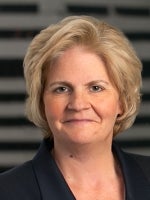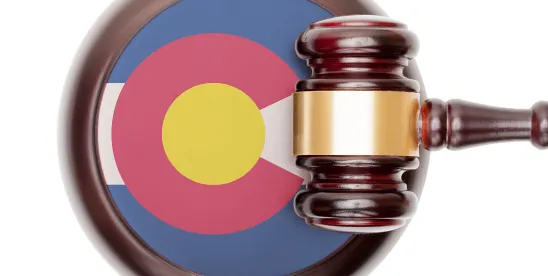The Colorado Supreme Court recently issued its opinion in Fear v. GEICO Casualty Company, 2024 CO 77. The Court certified two questions:
- Whether it is reasonable, as a matter of law, for a UM/UIM carrier to refuse to pay non-economic damages because such damages are “inherently subjective.”
- Whether an insurer’s pre-suit, internal settlement evaluations are admissible as evidence of undisputed benefits owed under State Farm Mut. Auto Ins. Co. v. Fisher, 2018 CO 39.
In answering the certified questions, the Supreme Court held that (1) it is not reasonable as a matter of law for an insurer to refuse to pay non-economic damages because such damages are inherently subjective and (2) an insurer’s pre-suit internal evaluations are not admissible to establish undisputed amounts owed but can be used for other purposes, such as to prove an insurer’s good or bad faith.
The Fear case follows the Supreme Court’s holding in Fisher in 2018, that a UM/UIM carrier is required to tender the undisputed amounts owed once determined and if it refuses to or delays in doing so, it is liable under C.R.S. § 10-3-1115/1116. Pursuant to C.R.S. § 10-3-1115/1116 (applicable to both first- and third-party claims in Colorado), an insurer is liable for two times the covered benefit owed under a policy if the benefits are unreasonably delayed or denied without a reasonable basis.
The Fisher case set the stage for Fear, as policyholder counsel pushed UM/UIM carriers to tender not only the undisputed medical expenses or wage loss but also non-economic damages based on the carriers’ evaluations. Policyholders’ counsel argued that once the insurer set a potential range for recoverable non-economic damages, that range was undisputed and thus, must be tendered. Prior to Fear, some insurers tendered non-economic damages while others did not, arguing that non-economic, general damages are inherently subjective and always reasonably disputed until determined by a jury.
A great many of the trial courts that weighed in on the issue agreed with the insurers, but the trial judge in Fear did not. Rather, the judge held that the Fisher holding extended to non-economic damages and found that GEICO’s evaluation range in its pre-suit evaluation was an undisputed value.
GEICO appealed the trial court’s ruling, and the Court of Appeals reversed. Thereafter, the Supreme Court accepted certiorari. The crux of the Supreme Court’s ruling in Fear is that a carrier cannot refuse to pay non-economic damages simply because such damages are “inherently subjective.” Further, a policyholder cannot introduce an insurer’s pre-suit claim evaluation to show the amount of undisputed benefits owed, although the evaluation may be admissible to show an insurer’s good faith or bad faith in the handling of a claim.
The Fear decision provides some guidance for carriers in addressing non-economic damages and whether such damages are reasonably disputable – noting that “circumstances may exist in which section 10-3-1115 requires an insurer to pay some or all of an insured’s alleged non-economic damages prior to final resolution of a claim.” The Fear court affirmed the Court of Appeals’ decision, albeit on different grounds, noting that the only evidence offered by the policyholder to prove that the non-economic damages were undisputed was GEICO’s pre-suit evaluation, which was inadmissible and, thus, could not be used to establish the undisputed amounts owed.
Conclusion
The questions unanswered by the Supreme Court are what circumstances would require a carrier to advance non-economic damages and how could that be proven – both of which will likely be the new frontier for UM/UIM bad faith litigation in Colorado.
Nothing in Colorado law requires a carrier to do a written evaluation of an insured’s damages, but that evaluation, if written and documented in the file, can be the touchstone in any bad faith case – proving either the carrier’s unreasonableness and, thus, bad faith conduct or, alternatively, the carrier’s reasonableness in the handling of the claim and its good faith. Carriers should consider the nature and purpose of their evaluations, identifying training and strategies going forward for their claims teams as to how the evaluation could be used in a later bad faith case to establish its reasonableness in the defense of any bad faith claim.
Colorado policyholder attorneys are aggressive and have taken advantage of adjusters inexperienced in handling Colorado claims. Going forward, carriers should look not only for ways their evaluations can be used against them but also how those evaluations could be used to help them in any subsequent bad faith case.



 />i
/>i
